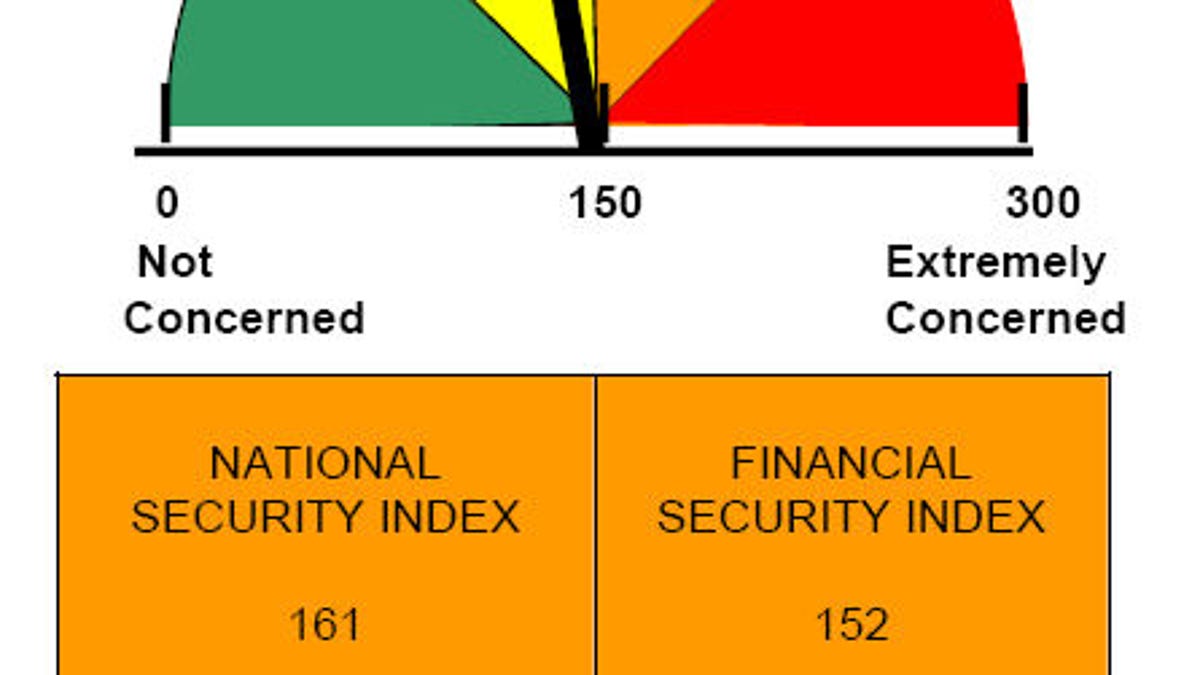Unisys survey looks beyond cybersecurity
Semiannual report from consulting firm attempts to "get a sense of where the public is" on security.

Internet security isn't a top concern among most average people, says a report released Tuesday by Unisys. What concerns most people is National Security, followed by financial worries.
"Whether it is the headline news that people listen to every day, or whatever is driving it, it's gone up 26 to 32 percent on this survey," said Tim Kelleher, vice president, enterprise security, Unisys. He said the results were surprising since the presidential election came down to where the candidates stood on the economy not the war.
Unisys focused its survey on four broad areas: national security, financial safety, Internet safety, and personal safety. Results in each category were combined and the composite score rated on a scale from 0 (not concerned) to 300 points (extremely concerned). At 145 points, the United States fell somewhere in the middle. An international version of this survey out in December will compare the U.S. with other nations.
"We're trying to do something that no one else has done," Kelleher said. "We're looking at security in a much broader sense then just cybersecurity, a personal security perspective, trying to do a broad brush of security from the perspective of an average citizen to get a sense of where the public is out there."
Among the other findings: Those aged 18 to 24 were less concerned about viruses and spam than those aged 25 to 49. Kelleher didn't want to speculate but said the younger age group seemed more comfortable with the Internet. The under-24 age group also missed the Melissa/ILoveYou/Slammer virus days and, therefore, aren't as concerned about epidemics. On the other hand, there's a spike among the 35- to 49-year-olds who would have been fighting these online epidemics five to ten years ago.
And people living in the South and West tend to be "extremely" or "very" concerned as opposed to people in the Northeast and Midwest.
More than 1,000 U.S.-based residents responded to questions from Unisys. The survey was conducted September 5-7 and is part of a larger, international survey due out in December.

